Champions League
10 soccer stories we loved in 2021
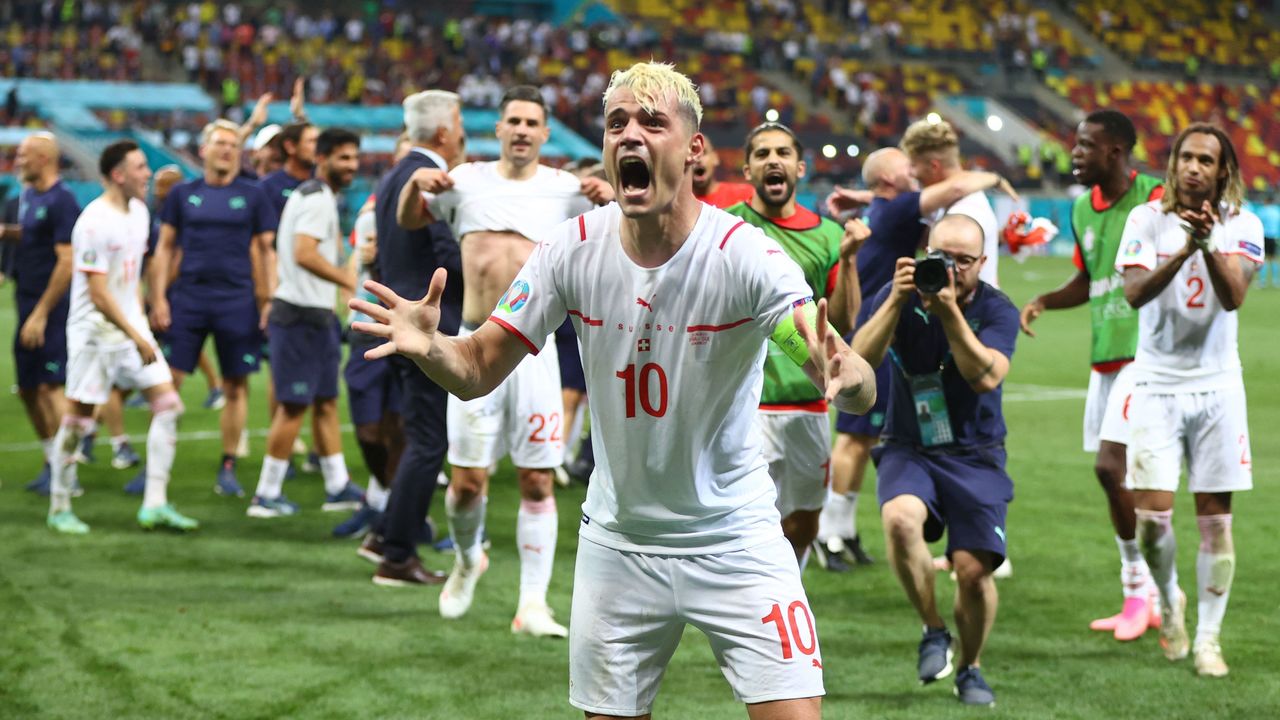
2021 was awash with huge stories in the world of soccer, with Lionel Messi’s departure from Barcelona arguably the biggest of them all. But what about the most impressive, heartwarming, or surprising developments of the year? Here, theScore selects 10 stories that provided some much-needed relief over the last 12 months.
10. Leicester City lift FA Cup for 1st time
Chelsea were seemingly unstoppable under Thomas Tuchel as they surged up the Premier League table, beat Manchester City in the FA Cup semifinal, and booked their place in the Champions League final (which they won). They were unsurprisingly heavy favorites heading into May’s FA Cup final, the United Kingdom’s biggest spectator event for 14 months.
But after Youri Tielemans’ long-distance screamer put Wembley at full volume, glory was within reach for underdogs Leicester. Chelsea twice came close to a dramatic late equalizer courtesy of ex-Foxes full-back Ben Chilwell: First, Kasper Schmeichel miraculously clawed away his near-post header. Then, VAR determined a Chilwell-engineered own goal for Wes Morgan was offside.
Leicester held on for the win and lifted the old trophy after losing each of the four previous FA Cup finals in their 137-year history.
9. That day Euro 2020 was drunk
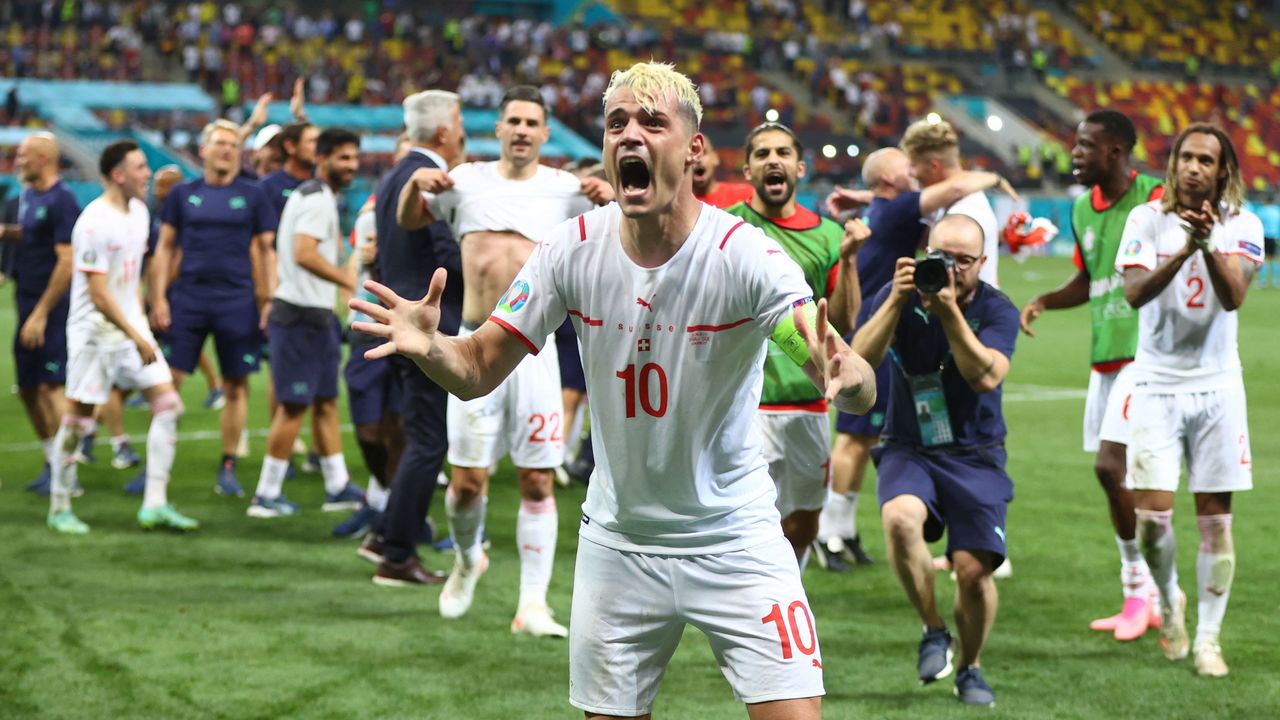
The back pass that skipped over Spain goalkeeper Unai Simon’s foot and into the net in the 20th minute set the tone. This wasn’t going to be a run-of-the-mill Monday in Euro 2020’s round-of-16 clashes.
Spain rallied against Croatia and was cruising when Ferran Torres put La Roja ahead 3-1 in the 77th minute. However, the Croats weren’t done. They spirited away Spain’s two-goal advantage when they nudged the ball in during a goalmouth scramble and equalized through Mario Pasalic’s injury-time header.
But Simon made amends for his first-half error with a marvelous save to thwart Andrej Kramaric early in extra time, and this proved the springboard for Spain to eventually carve out a 5-3 victory.
Somehow, the next match was even crazier. Switzerland swarmed Didier Deschamps’ much-changed France side in the opening half but only took a 1-0 lead into the break after spurning a host of chances, including a Ricardo Rodriguez spot-kick that was pushed away by Hugo Lloris. And, of course, Switzerland was punished when Karim Benzema scored twice in under five minutes and Paul Pogba pocketed a sublime effort from distance.
But from nowhere, Switzerland was resuscitated. Haris Seferovic notched his second header of the game and Mario Gavranovic fired in a 90th-minute equalizer. France still could’ve won, though, but Kingsley Coman hit the bar in the final seconds of normal time and other chances went begging in extra time.
A high-quality penalty shootout followed until Kylian Mbappe stepped up for France’s fifth effort. Yann Sommer saved Mbappe’s strike, giving Switzerland the win in an all-time classic encounter.
8. Barcelona women take over
Barcelona are on course to dominate the women’s game once again in 2022. They’ve won all 15 of their matches in the 2021-22 La Liga campaign, scoring 86 goals and conceding only four, and have cruised into the Champions League quarterfinals after beating Women’s Super League leaders Arsenal 4-1 and 4-0 during the group stage.
Plus, Barcelona were devastating over the 2020-21 term as they secured the Primera Division, Copa de la Reina, and Women’s Champions League titles in the same season for the first time.
Alexia Putellas notched 27 goals and 19 assists last season through her intelligent and bewitching play in midfield, but it almost felt wrong to single out just one Barcelona star for praise when she won the 2021 Ballon d’Or. Certain players stand out in different games, of course, but the fluidity and sheer brilliance of this Barcelona generation is a stunning tapestry rather than a series of portraits.
“For me, it’s a collective success,” Putellas said upon receiving the award.
7. Lille outmuscle PSG to take Ligue 1 crown
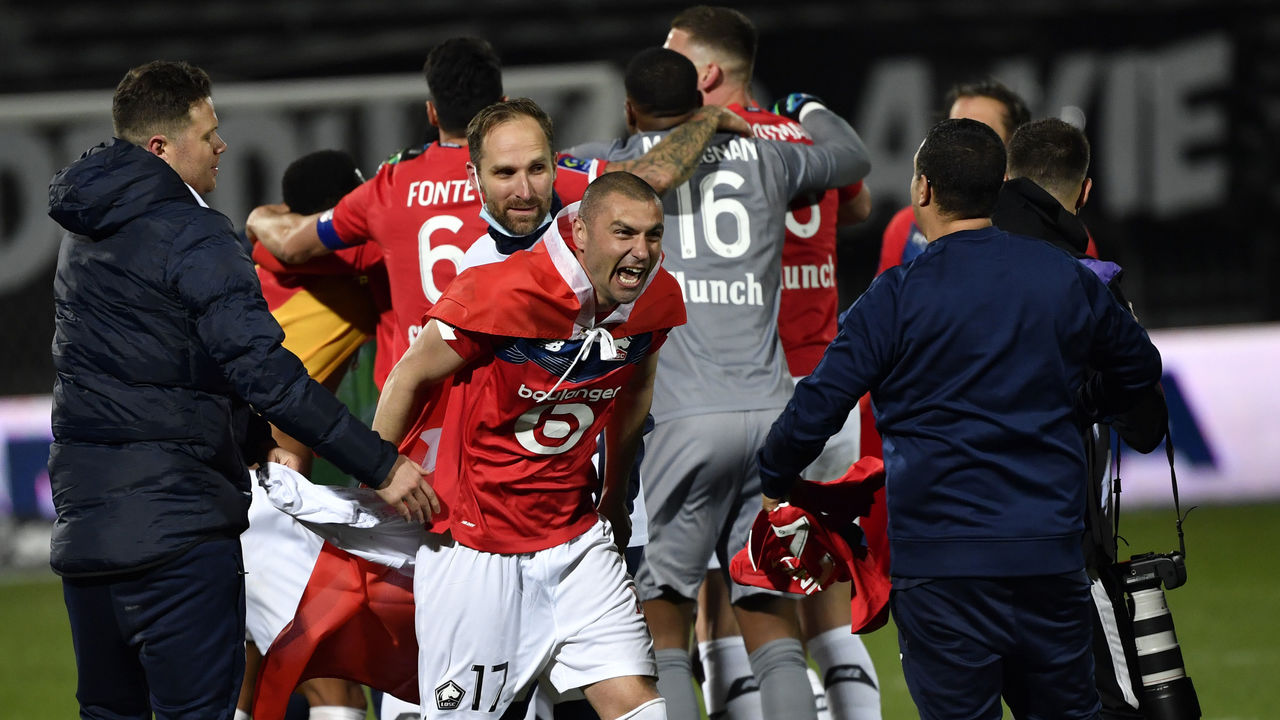
Lille’s run to the Ligue 1 title was no Moneyball success story. It was built on youth and experience, and some damn good coaching.
Les Dogues held their own against France’s top five teams, going unbeaten against rivals Paris Saint-Germain, AS Monaco, Lyon, and Marseille while boasting the league’s best defense. Jose Fonte, then 37, and Sven Botman, then just 20, complemented each other in central defense, and goalkeeper Mike Maignan proved himself as France’s next great shot-stopper, keeping a league-high 21 clean sheets.
Galtier shortened his squad, calling on just 21 dedicated players in Ligue 1, the fewest of any team in the top flight, and did an impeccable job shielding his team from the distractions of a messy change in ownership in December 2020.
6. Norway protests human rights abuses in Qatar
As universal as human rights may be, few in the soccer community have taken a significant stand against the ongoing abuses in Qatar, where the 2022 World Cup will kick off in less than a year’s time. More than 6,500 migrants have died since the gulf nation won the right to host the World Cup in 2010, and while local authorities link 34 of those deaths to the construction of stadiums, watchdog groups believe the total death toll is significantly higher.
Players for Norway’s national team led a rare call for justice in March, revealing T-shirts with a simple but strong message: “Human rights on and off the pitch.” Erling Haaland, one of the sport’s rising stars, took part in a protest no other player of his stature had dared to front. His presence alone was enough for people to take notice.
Norway also held a vote among delegates in June over a potential boycott. The country’s football association opted not to do so – Norway failed to qualify for next year’s tournament anyway – but the display back in March prompted an important conversation that few in the game were comfortable having.
5. Canadian women win Olympic gold
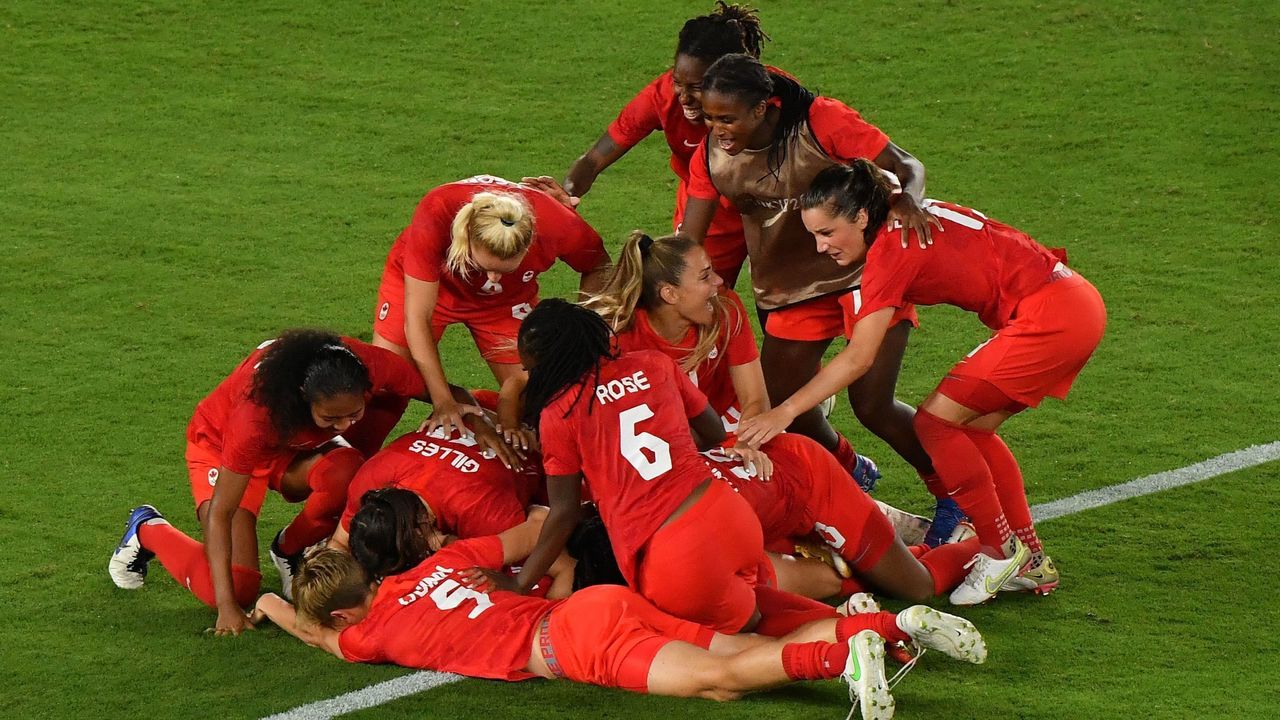
Canada’s women’s team banished the ghosts of its unwanted past by winning the gold medal at the Tokyo Olympics. Having settled for bronze at the 2012 and 2016 Games, the Canadians finally broke through in Japan, beating the United States for the first time in 20 years before defeating Sweden in the final. Goalkeeper Stephanie Labbe saved two of Sweden’s last three spot-kicks in a tense penalty shootout, and 21-year-old Julia Grosso buried the decisive kick to make gold medallists out of Canada for the first time.
It was a crowning moment for the team, but mostly for Christine Sinclair, the most prolific scorer in international soccer who, at 38 years old, was playing in the Olympics for the last time. She carried the program for two decades, elevating the profile of women’s soccer in a country that hockey long dominated and inspiring the very generation of girls that helped her win gold in Tokyo. Grosso wasn’t even born when Sinclair made her senior debut in March 2000.
4. Transfer window madness
Despite the financial effects of the coronavirus pandemic, clubs still managed to spend $3.72 billion on transfers between June and August. That doesn’t even include free transfers, such as Lionel Messi’s big move to Paris Saint-Germain, David Alaba’s switch to Real Madrid, Barcelona’s acquisition of Memphis Depay, and PSG’s deal for Euro 2020 star Gianluigi Donnarumma. Manchester City made Jack Grealish the most expensive signing in Premier League history, and Cristiano Ronaldo headlined Manchester United’s spending spree.
But not all teams had money to spend. Messi left Barcelona after 21 years because the club couldn’t afford to keep him, and Juventus sold Ronaldo because they couldn’t afford to keep him.
However, PSG trolled everyone with their ridiculous summer spending. On top of Messi and Donnarumma, the Ligue 1 giants rolled out Achraf Hakimi, Sergio Ramos, and Georginio Wijnaldum in a bid to upend the traditional order in European soccer.
3. Messi ends trophy drought with Argentina
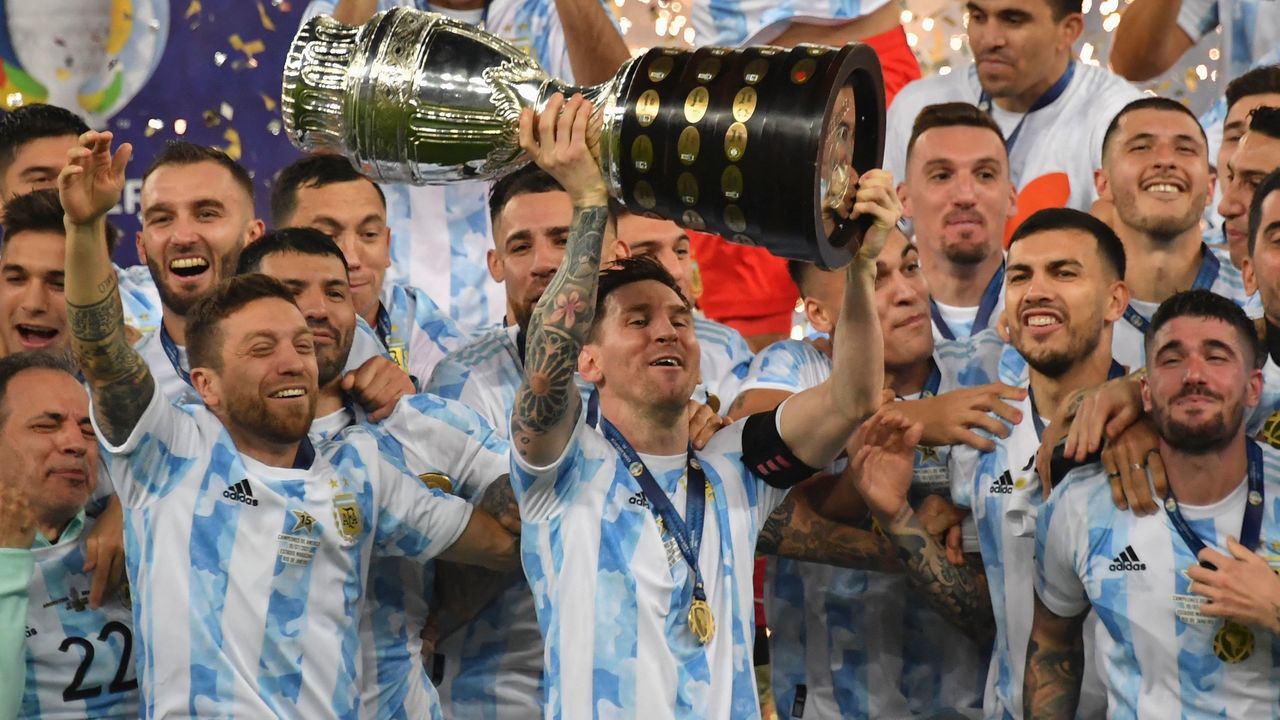
Messi fell to his knees when it dawned on him that he’d finally, for the first time in his career, won a trophy with Argentina’s national team. The final whistle blew, signaling a 1-0 win over Brazil at the Maracana, of all places, and prompting Messi to lift the Copa America amidst a flood of tears.
“I needed to remove the thorn of being able to achieve something with the national team,” Messi said. “I had been close for other years and I knew it was going to happen. I am grateful to God for giving me this moment, against Brazil and in Brazil. I was saving this moment for myself.”
Messi lost in the 2007, 2015, and 2016 Copa America finals and again in the 2014 World Cup final, complicating his already tense relationship with the Argentinian public. He quit on the national team after missing a penalty in the shootout against Chile in 2016 but returned with a mission.
Messi dominated this tournament, leading all players with four goals, five assists, and six big chances created. Many believe he won the Ballon d’Or specifically because of his heroics for Argentina.
2. Fans take down European Super League
The European Super League would’ve been a terrible spectacle. The 20-club system was only open to five teams on sporting merit, while the other 15 sides were assured of their Super League place regardless of performances in their respective domestic leagues and in the competition itself.
The 15 clubs would’ve taken the majority of football’s riches in their gated community and diluted the importance of matches in both domestic and continental football.
So, the fans fought back. First, protests outside Stamford Bridge forced Chelsea to pull out; then Manchester City followed, and then the rest of England’s rebels. The Super League died two days after it was introduced to the world, and most of the executives who signed up to the project were forced to acknowledge their pursuit of more money had overlooked what fuels the sport.
“What you’ve got is something created over 100 years ago that was fantastic,” Barnet owner Tony Kleanthous told theScore after the Super League’s collapse on April 20. “And you’ve got a few rich people today that think it’s theirs, that think they own it. They will never own it; the fans own it.”
1. Eriksen’s life saved after heroic response
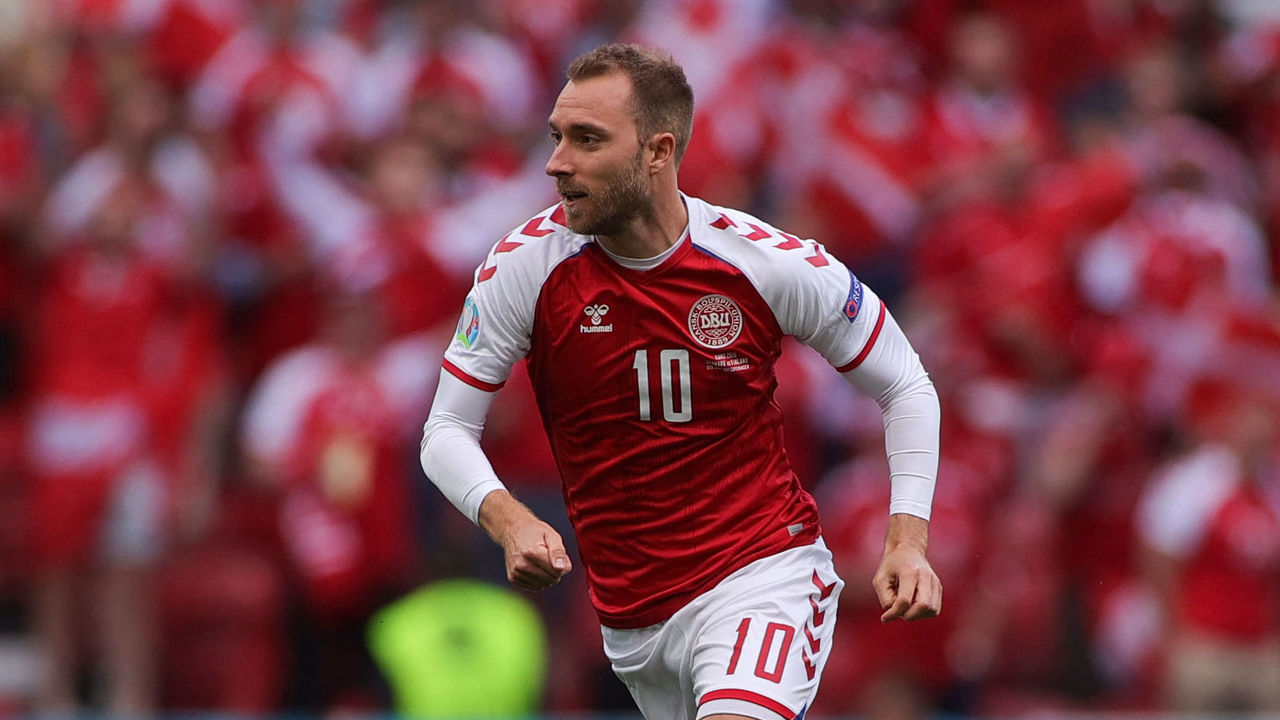
When Denmark’s Christian Eriksen collapsed midway through his country’s Euro 2020 opener against Finland, referee Anthony Taylor took immediate action, signaling medics onto the pitch.
“I knew straightaway something was wrong because of how his face looked and how he fell to the floor,” Taylor told BBC Sport.
Thanks to their quick response, the medics eventually administered life-saving CPR on Eriksen, who suffered cardiac arrest and required a defibrillator to be resuscitated.
“He was gone,” team doctor Morten Boesen said at the time.
Simon Kjaer, Denmark’s captain and a close friend of Eriksen’s, was one of the first people to intervene. Within seconds, Kjaer rolled Eriksen onto his side to clear his airways and begin the process of CPR. Kjaer then stepped aside to console Eriksen’s partner on the sideline.
In a further display of unity and strength, Denmark’s players formed a human shield around Eriksen while he was receiving treatment, giving their fallen teammate the dignity and privacy he deserved.
As the teams awaited word on whether to resume the match, Finland supporters started chanting, “Christian! Christian!” The Danish fans answered by shouting, “Eriksen! Eriksen!”
What could have been a nightmare ultimately turned into a story of heroism, courage, and togetherness.
You may like
Champions League
Ranking 8 teams remaining in Champions League
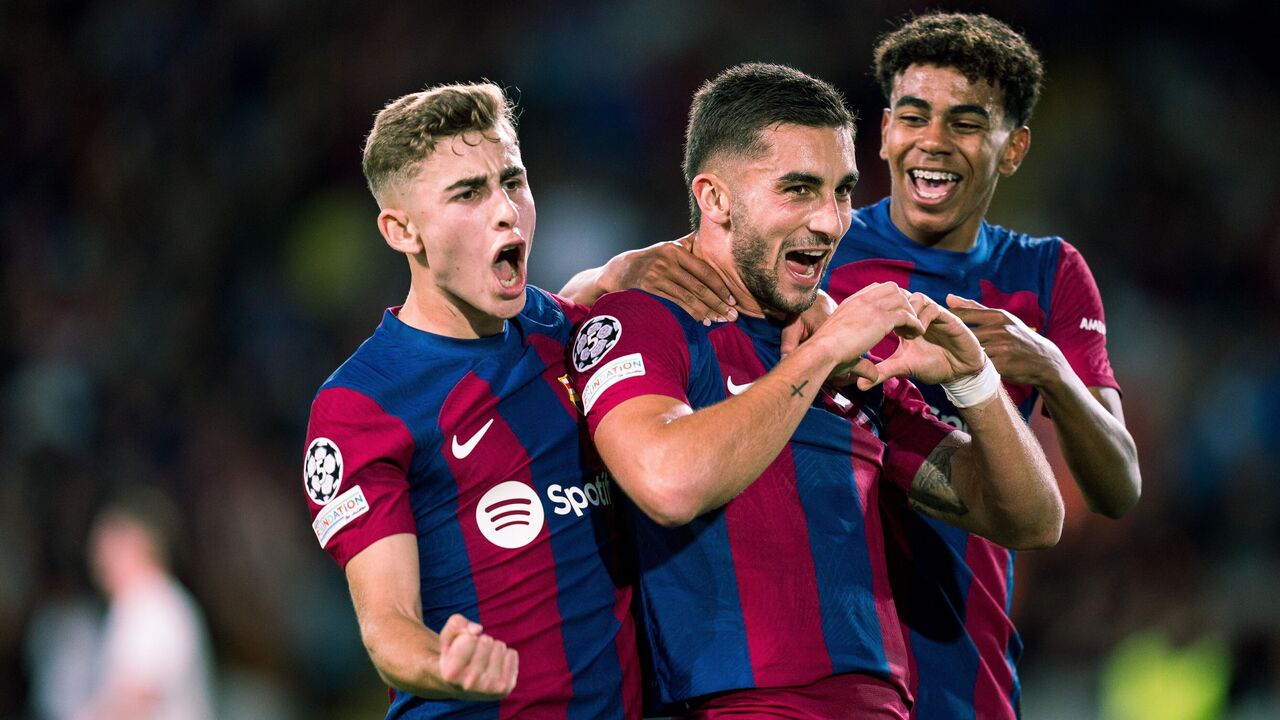
Find the biggest stories from across the soccer world by visiting our Top Soccer News section and subscribing to push notifications.
We’re down to the nitty-gritty in the Champions League.
Atletico Madrid capped off the round of 16 with a shootout victory over last season’s finalists Inter Milan, upsetting a red-hot team widely fancied to make another deep run in Europe’s premier club competition. Other teams will look to capitalize on Inter’s surprising ouster and challenge for the coveted big-eared trophy.
With that in mind, here’s how we think the field stacks up heading into Friday’s quarterfinal draw.
8. Borussia Dortmund
Edin Terzic’s men will be undisputed underdogs regardless of who they meet in the quarterfinals. An underwhelming last-16 victory over PSV Eindhoven did little to dispel the notion that Borussia Dortmund are the least intimidating team remaining. They needed a healthy slice of good fortune, and some wayward PSV finishing, to scrape past the Dutch outfit. Jadon Sancho’s first Champions League goal in three years does provide some reason for optimism, though. If the on-loan winger can stay fit, he still has the ability to be a game-changer who can potentially inspire an upset.
7. Atletico Madrid
Atletico Madrid are the most difficult team to judge of the eight remaining in the tournament. Almost every side goes through ebbs and flows during a match, and a season at large, but Diego Simeone’s feisty squad has been taking that to another level. Spurred on by a boisterous home crowd, they were at their aggressive best for parts of Wednesday’s entertaining clash against Inter Milan but also looked totally overwhelmed by the Nerazzurri’s pressure for large stretches. Their never-say-die attitude got them over the line, though. It may be a cliche, but even amid a patchy season, Atleti are a seasoned team that the other seven contenders would ideally like to avoid in the quarterfinals. Just ask Inter.
6. Barcelona
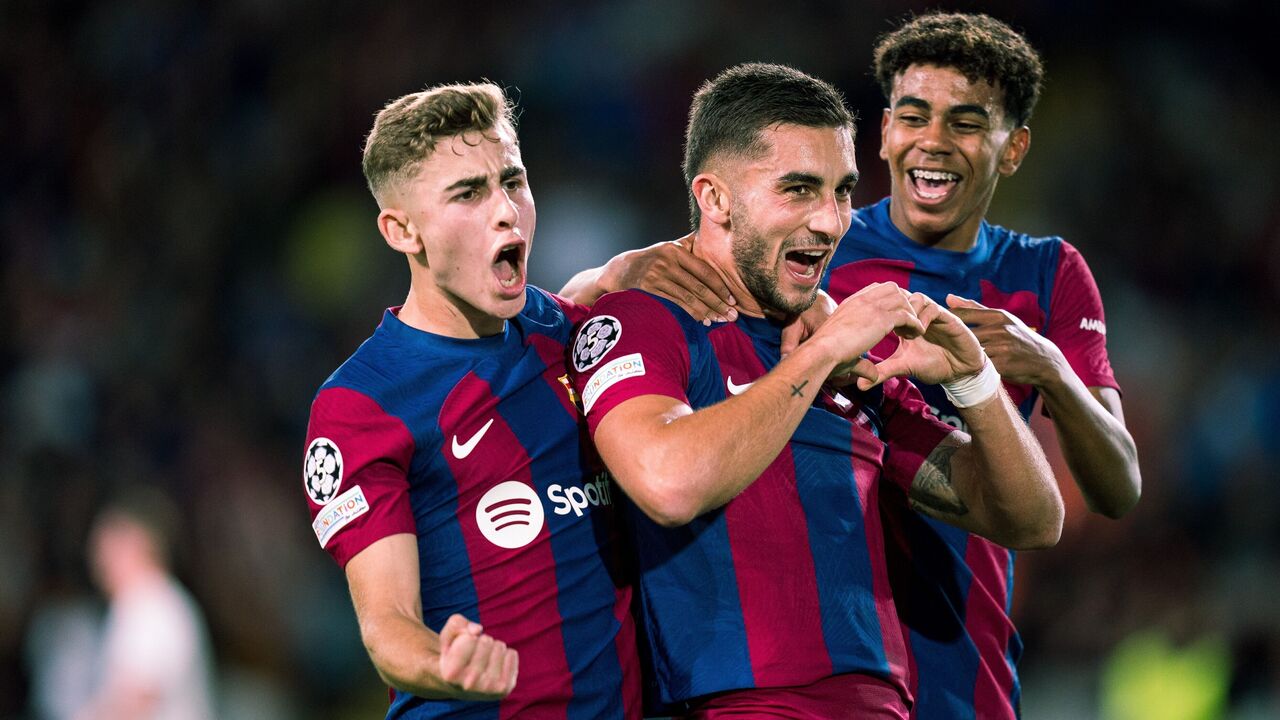
Just how far can the youngsters carry this team? Barcelona remain flawed – hence their position on this list. But the emergence of exuberant prodigies like Lamine Yamal, Fermin Lopez, and Pau Cubarsi, all of whom were outstanding in the last-16 second-leg triumph over Napoli, is providing a second wind for a club that looked deflated earlier in the season. Despite Barca’s notorious off-field mismanagement and uncertain managerial future post-Xavi, their famed academy has delivered once again. That’s unlikely to be enough for the Catalan side to reach Wembley for the final, but the mood around the team is on the upswing. What once looked like a lost season is far less bleak right now.
5. Bayern Munich
It’s been difficult to find the right center-back duo, and Thomas Tuchel has repeatedly moaned about his lack of a true No. 6, but Bayern Munich’s results haven’t been that bad. The Bavarians have 57 points in Germany’s top flight – the average points haul at this stage in the post-Pep Guardiola era is 58. Harry Kane has matched a 60-year-old record for goals in a debut Bundesliga campaign (30) with nine matches remaining and proved he’s a big-game player with two finishes to help overturn a one-goal deficit against Lazio in the Champions League last 16. This isn’t vintage Bayern by any means, but they shouldn’t be underestimated.
4. Arsenal
Nearly every other team on this list – save for Premier League rivals Manchester City, of course – is either cruising toward a league title or far enough away from top spot that domestic commitments shouldn’t interfere too much with their Champions League focus. Arsenal don’t have that luxury, but Mikel Arteta’s men have displayed a newfound mettle and maturity this season that suggests they can handle the rigors, both mental and physical, of high-leverage games across the two competitions. Porto delivered a big scare in the last 16, but that should serve the Gunners well; few teams ever totally cruise through the Champions League. The shootout win over Porto could turn out to be a seminal moment.
3. Paris Saint-Germain
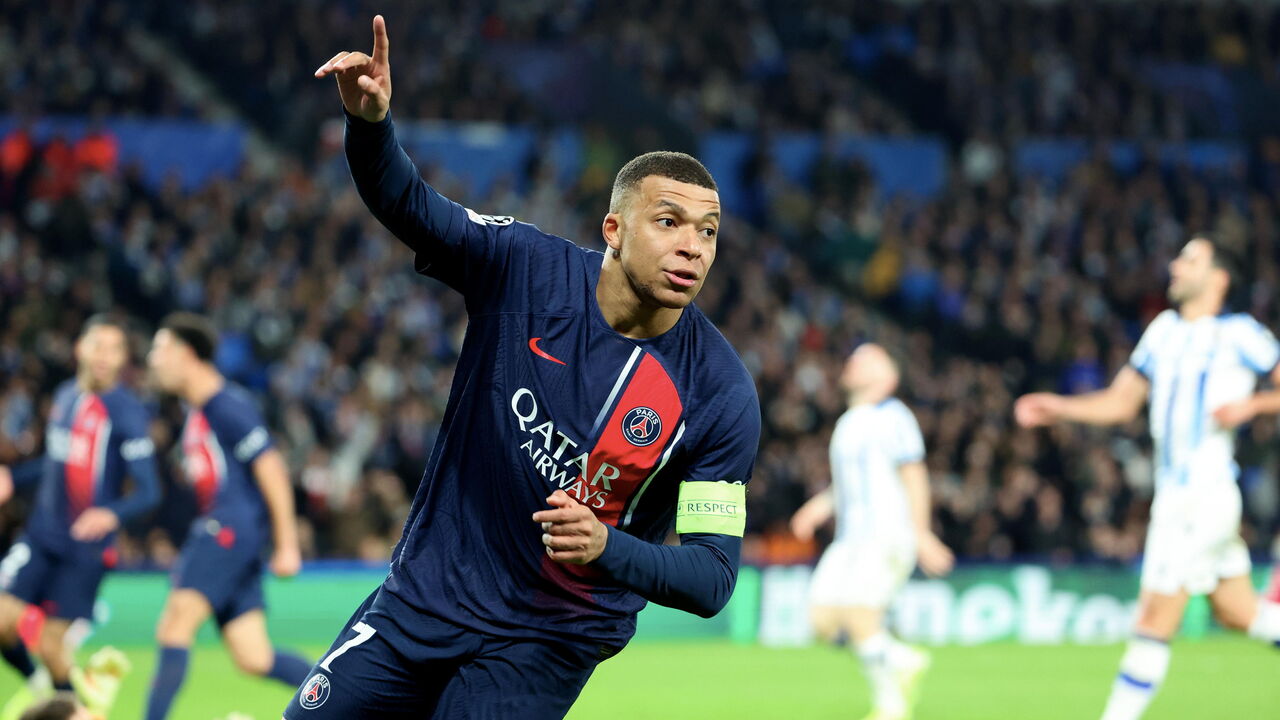
There’s something different about Paris Saint-Germain. Luis Enrique’s determination to instill discipline and form a solid, long-term foundation have risked upsetting Kylian Mbappe and the whole nation while the forward’s been handed reduced minutes ahead of his summer exit. Nevertheless, there is greater professionalism in PSG’s ranks. They work as a team rather than a discordant club of self-serving galacticos. Their dismissal of Real Sociedad in the round of 16 was impressive – especially when they weathered the aggressive, adventurous opening to the second leg from the Basque hosts. And with Mbappe hanging around for a few more months, PSG have to be billed as genuine contenders.
2. Real Madrid
Real Madrid looked genuinely terrible in the second leg of their narrow last-16 triumph over RB Leipzig. They were panicky and imprecise in possession, and weirdly lackadaisical in defense. It nearly cost them. It didn’t, of course, thanks largely to the individual excellence of Jude Bellingham and Vinicius Junior. Madrid, famous for using magical singular moments to undo all the sustained hard work of their opposition, can never be counted out for that very reason. Especially in this competition. Ominously for the rest of the field, they’re starting to get healthy, too, with Eder Militao and Thibaut Courtois both expected back after the upcoming international break, which will put them in line to play in the quarterfinals.
1. Manchester City
Manchester City are more vulnerable than last season. Quick balls played behind the backline have caused plenty of problems, and some defenders have struggled against direct runners. But this is Manchester City. Erling Haaland has 41 goals in 37 Champions League appearances; Kevin De Bruyne has registered 12 assists despite starting just seven matches since returning from injury in January; and Phil Foden is in the best form of his career. In addition to the wealth of talent, Pep Guardiola could hastily find solutions for his team’s deficiencies; he surprised everyone when he deployed four center-backs en route to securing last season’s treble.
Champions League
Key thoughts and analysis from this week's Champions League action
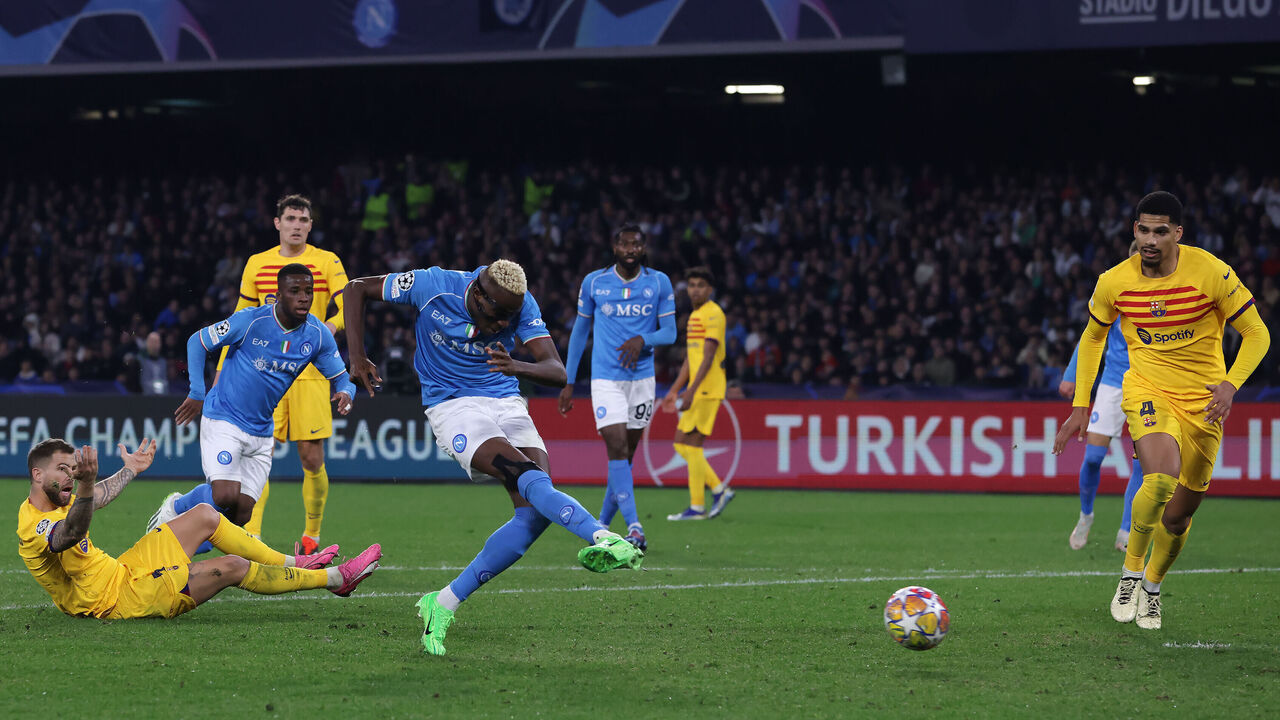
Find the biggest stories from across the soccer world by visiting our Top Soccer News section and subscribing to push notifications.
The Champions League round of 16 rumbled on with four more first-leg matches this week. Below, we dissect the biggest talking points from the quartet of intriguing fixtures.
A battle of fallen titans
On paper, a meeting between the current titleholders in Spain and Italy would be fitting of a Champions League final. What a treat, then, to get exactly that matchup in the round of 16. Except, Barcelona and Napoli are totally unrecognizable from the teams that dominated their respective domestic leagues and romped to trophies in 2022-23.
Though Barcelona dictated play for the bulk of Wednesday’s 1-1 draw at the Stadio Diego Armando Maradona, they lacked precision in key moments and any sort of cutting edge until Robert Lewandowski’s clinical finish opened the scoring on the hour mark. Playing against a hesitant team on its third manager of the season, Barca should have taken a stranglehold on the tie from there. Instead, an untimely gamble by Inigo Martinez gifted Victor Osimhen an equalizer that Napoli otherwise looked incapable of finding. It was an all-too-familiar failing for Barca, who’ve been defensively suspect all season after being so resolute during their title-winning campaign.
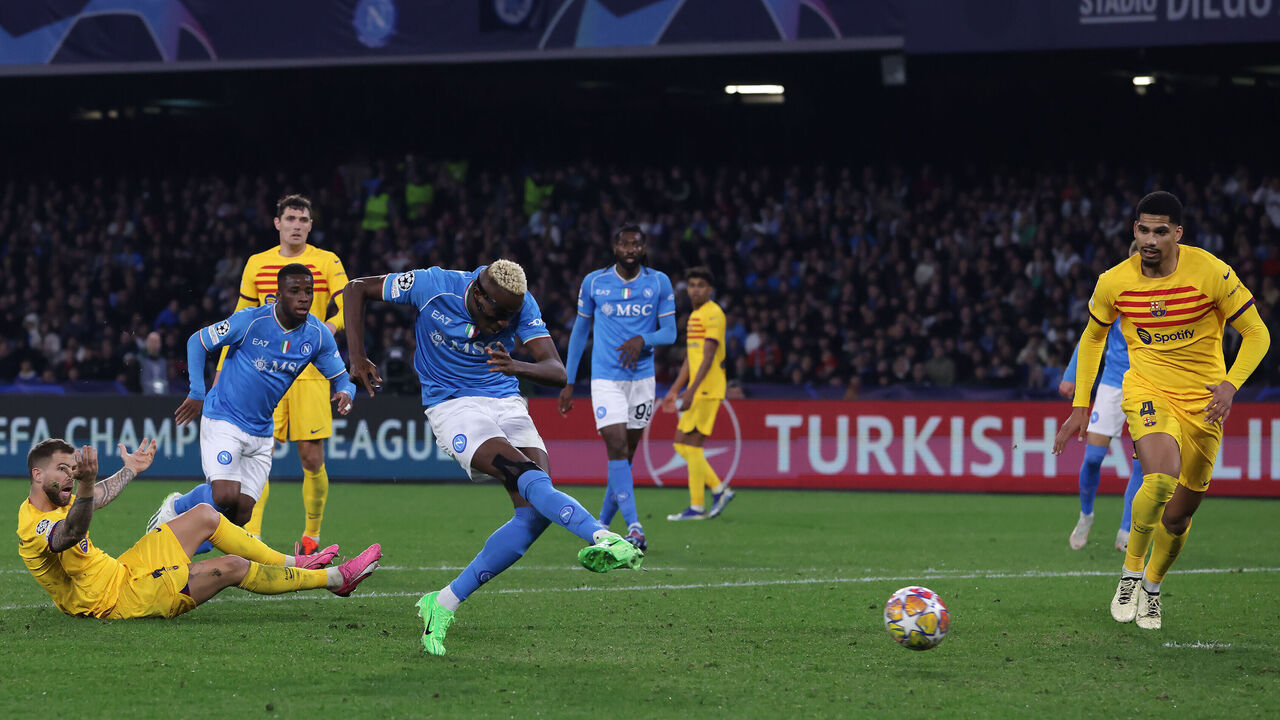
For all of Barcelona’s issues, Napoli are in an even more worrying state of disrepair. Enduring one of the worst title defenses in recent memory – they’re ninth in Serie A, sitting 27 points off the league lead – Napoli made another coaching change just 48 hours before Wednesday’s match, replacing Walter Mazzarri with former assistant Francesco Calzona. Anybody expecting an immediate “new manager bounce” will have been left disappointed.
The team still looks disjointed. The backline remains unconvincing without Kim Min-jae. Khvicha Kvaratskhelia, while dogged as ever, isn’t taking over games like he did during his sensational breakout season. Stanislav Lobotka isn’t getting on the ball as often at the base of midfield. Andre-Frank Zambo Anguissa looks a little jaded. Even Osimhen, making his first club appearance in 2024 after returning from AFCON, spent much of the match throwing his arms up in frustration – he had just three touches inside the Barca penalty area and had the fewest touches overall of any player who started the contest. His goal was Napoli’s lone shot on target in the match. He took that one chance with composure, though, and Napoli will hope that his return, along with more time getting comfortable working in Calzona’s system, will be the catalyst for a late-season surge. It needs to be.
Inter built for another run at European glory
Simone Inzaghi has turned Inter Milan into an unstoppable force to begin 2024.
Inter have dominated their opponents in Italy to start the year, putting themselves in prime position to capture their first Scudetto of the Inzaghi era after eight consecutive victories in all competitions – including six in Serie A – before Tuesday’s meeting with Atletico Madrid. That run included victories over Lazio, Napoli, Fiorentina, Juventus, and Roma.
They kept it going on Tuesday with a 1-0 win.
While Inter were widely expected to emerge victorious from Tuesday’s contest, the match was gritty and unfolded how Inzaghi might’ve expected when he predicted his squad would have to be “good enough to react to problems” against Diego Simeone’s notoriously tricky Atletico side.
Inter’s stellar play comes after the club was heavily criticized on the heels of its run to the Champions League final for a lack of inspired signings amid financial problems last summer. But now, it’s hard to envisage this team without Marcus Thuram – who, as a free transfer, has been one of the best signings in all of Europe and formed a lethal partnership with Lautaro Martinez. New faces Benjamin Pavard and Yann Sommer have been excellent, too, while Carlos Augusto has been a key contributor off the bench.
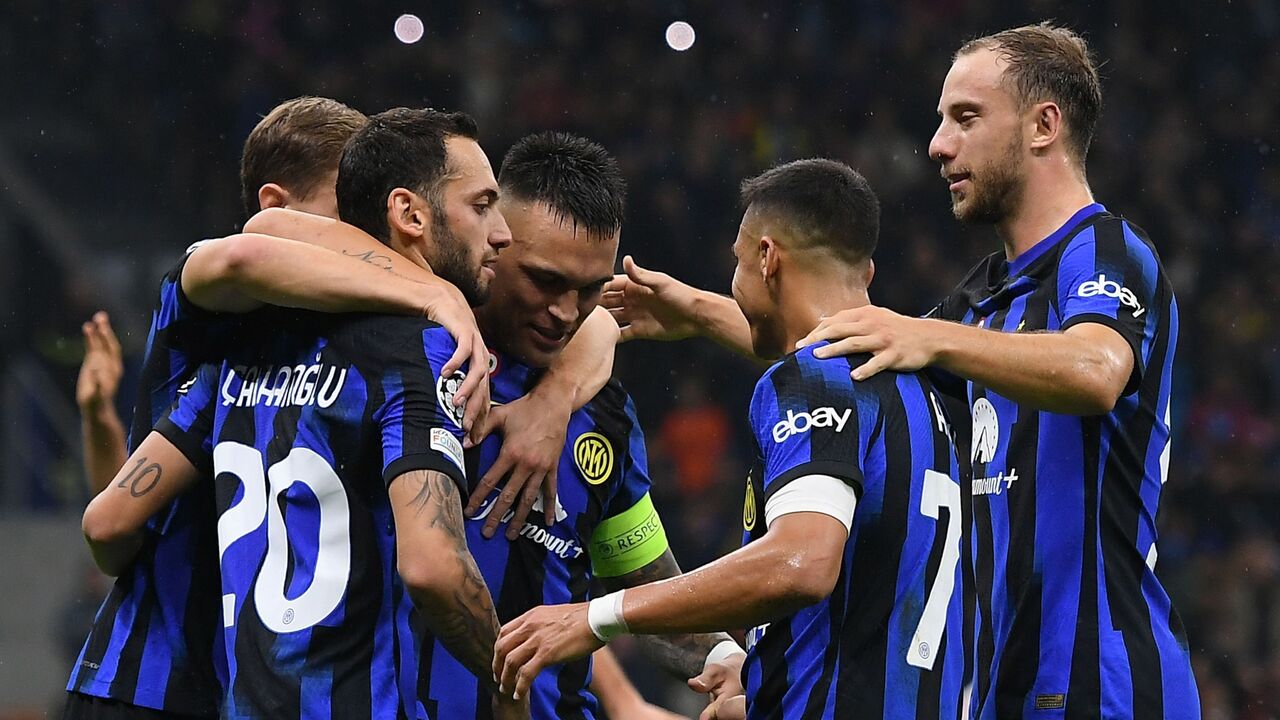
However, it was another shrewd signing who helped take down Atletico. Journeyman striker Marko Arnautovic was brought on to replace Thuram, who exited at halftime with an injury. The 34-year-old – on loan from Bologna – should’ve had a hat-trick during his cameo appearance but missed twice from just yards away before banging in the eventual winning goal to send the San Siro into a frenzy.
Inter are perfectly positioned going into the final months of the season. Mowing down the competition domestically and building a healthy nine-point cushion atop Serie A, the Nerazzurri could opt to rest some stars in the coming weeks in order to throw everything they have into winning the return leg in Madrid next month and, in their ideal world, go one step further than last season in the Champions League.
Quick free-kicks
A victory for Porto and away-goal enthusiasts
Galeno’s goal was a moment of superb vision and immaculate execution, but it arguably wasn’t worth the wait for anybody who’s not an FC Porto fan. Porto and Arsenal had one shot on target between them before the Brazilian winger scored the only goal of Wednesday’s contest. Both teams feared making mistakes. The Gunners – who had struck 21 times across their previous five fixtures in all competitions – deliberately slowed the game while they dawdled during dead-ball situations and disappointingly refused to dip into their usually creative and effective repertoire of set-piece routines. It’s hard to imagine that the visitors would’ve been so conservative if the away-goal rule was still in force: A scoring draw would’ve been much more valuable than the 0-0 that Mikel Arteta appeared to be content with. In the end, Arsenal’s game plan backfired.
Galeno top of the pile
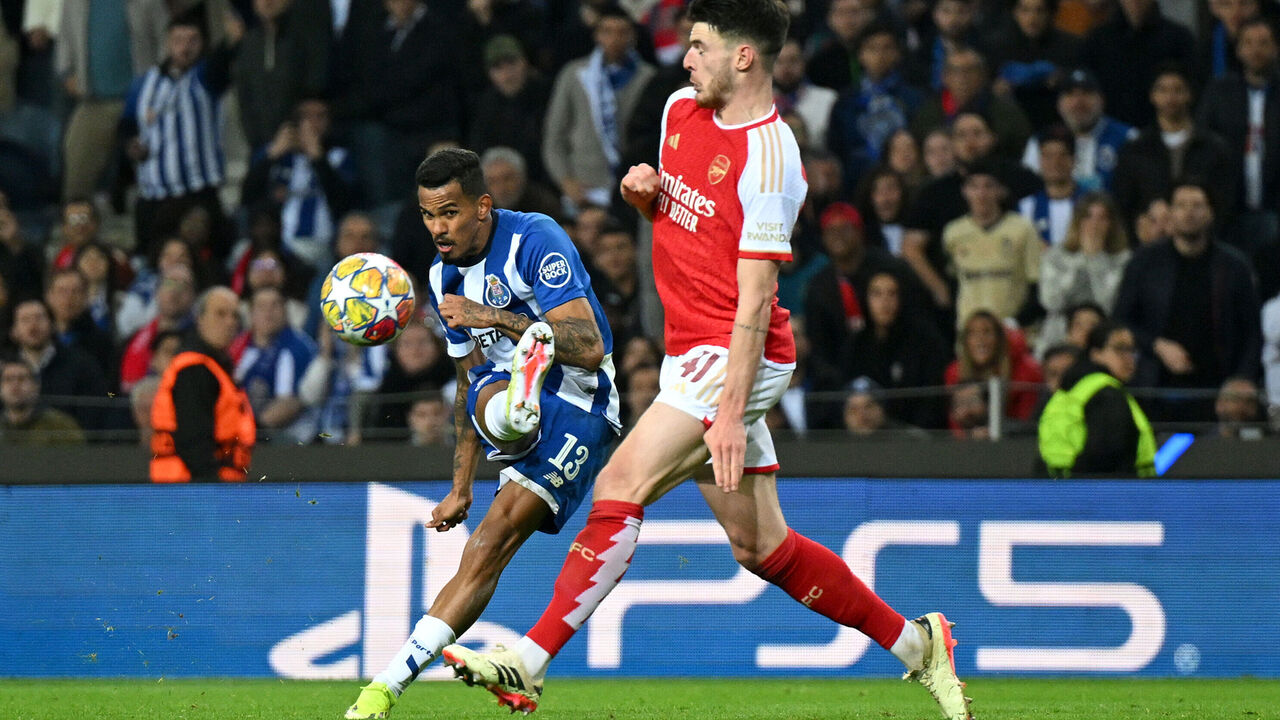
Still, that was some goal by Galeno. “When the opportunity arose, I didn’t hesitate,” he told DAZN post-match. The Brazilian winger is now leading this season’s Champions League with eight goal contributions (five goals and three assists), narrowly beating the English quartet of Harry Kane, Jude Bellingham, Phil Foden, and Bukayo Saka (seven involvements apiece). Galeno’s output in Europe proves he’s capable of hurting opponents in a variety of ways. Across two group stage meetings with Shakhtar Donetsk, he was alert to convert three close-range finishes, twice furiously ran down the flank before assisting Mehdi Taremi, smashed in a venomous shot from the edge of the box, and his near-post flick-on from a corner set up a Pepe tap-in. And now, he’s outdone all of his previous work with an outrageous effort that puts Arsenal’s Champions League bid under threat.
PSV can get famous result in Germany
PSV Eindhoven were in control for much of Tuesday’s visit from Borussia Dortmund so were rightly disappointed with their 1-1 draw. Ex-PSV favorite Donyell Malen opened the scoring with an explosive strike that rocketed in off the bar, but the hosts could’ve responded with more than Luuk de Jong’s equalizer from the penalty spot. Dortmund cowered in the atmosphere. “We should have brought much more calmness to the game. We let the heated atmosphere get to us too much,” Dortmund defender Mats Hummels admitted after the match. PSV should still feel encouraged going into the second leg despite Dortmund’s home advantage: The German side’s excellent group stage display was an unexpected boost during a frustrating domestic campaign, while the Dutch outfit has lost just twice across all competitions – away at Arsenal and Feyenoord – and is 10 points clear atop the Eredivisie.
Stat of the week
Signing of the season? Sommer’s arrival from Bayern Munich didn’t set pulses racing, but the 35-year-old has ensured Inter haven’t missed Andre Onana between the sticks.
Yann Sommer has now kept seven more clean sheets (21) than he has conceded goals (14) across all competitions for Inter this season. ? pic.twitter.com/0f2pRADBcm
— Squawka (@Squawka) February 20, 2024
Tweet of the week
Is it already time to revisit this rule change? (Yes, it is.)
if only there was some kind of rule that encouraged away teams to attack more https://t.co/QVmP4Y44qf
— Michael Cox (@Zonal_Marking) February 21, 2024
Champions League
Key thoughts and analysis from Matchday 5 in the Champions League
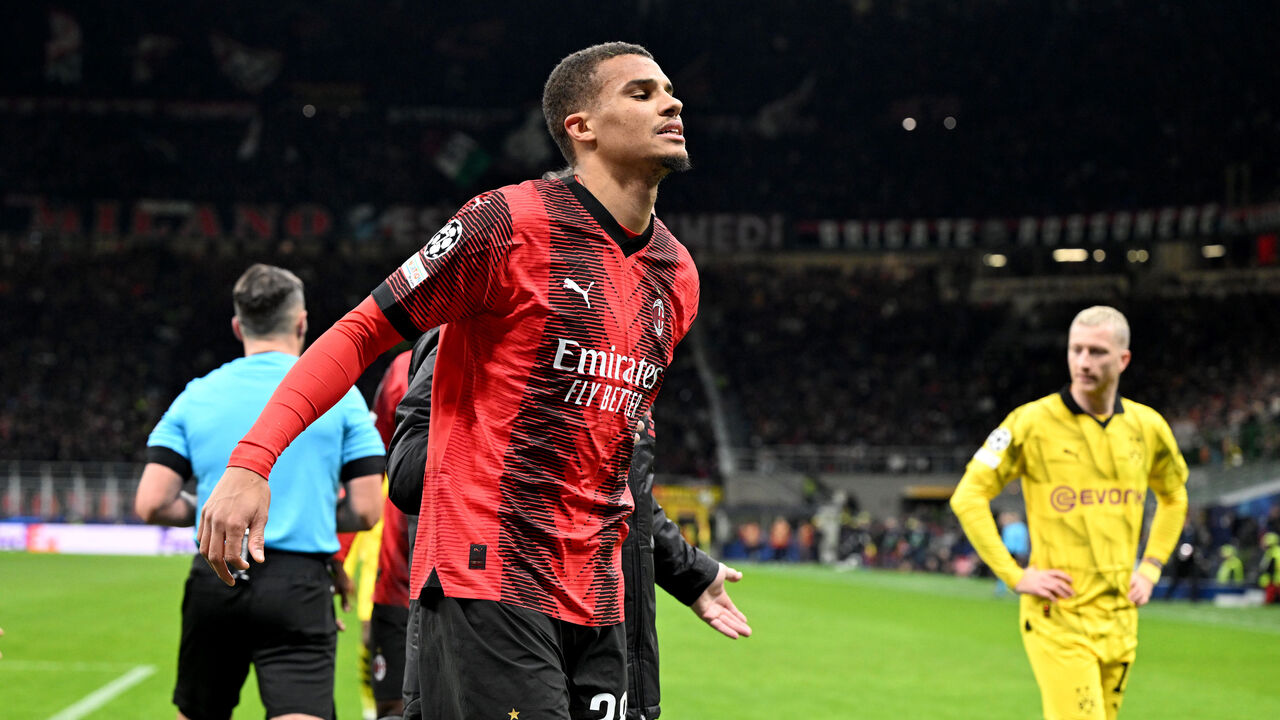
The Champions League rumbled on this week. Below, we dissect the biggest talking points from a critical Matchday 5 in Europe’s premier club competition.
UEFA ‘apology’ falls on deaf Newcastle ears
UEFA has all but acknowledged that the decision to award Paris Saint-Germain a penalty deep into stoppage time of Tuesday’s eventual 1-1 draw with Newcastle United was incorrect. Tomasz Kwiatkowski, the video assistant referee who advised experienced compatriot Szymon Marciniak to review Tino Livramento’s 96th-minute handball and overturn his initial on-field decision, was scheduled to act as the VAR for another match on Wednesday but was swiftly removed from duty after the contentious incident in France.
That’s as close to an “oopsie” as you’ll ever get from the haughty organization.
It does nothing to help Newcastle, of course, and once again calls into question the understanding of the handball rule, one of the most mystifying regulations in all of sports. Marciniak and his Polish peer Kwiatkowski are among the most esteemed officials in world football; they both worked the 2022 World Cup final in the same roles they carried out on Tuesday at the Parc des Princes.
If even they can’t get it right, who can?
It also provides yet another example that UEFA’s Football Board, an advisory group comprised of former players and coaches, was right when it recommended in April that handball incidents involving deflections off a player’s body shouldn’t result in spot-kicks. That suggestion wasn’t implemented by UEFA, though. And here we are.
It’s certainly true that, on the basis of play, PSG probably deserved at least a point from Tuesday’s match. The French side dominated the second half, launching wave after wave of threatening attacks. Only some horrid finishing – Bradley Barcola was the main culprit – and brilliant goalkeeping kept them out before Kylian Mbappe stepped up to accept the gift from Marciniak in the waning seconds.
-3.47 – Paris scored just one goal despite 4.47 Expected Goals, a negative differential of 3.47 which is the highest for any team in an UEFA Champions League game since Opta had this data (2013/14). Waste. pic.twitter.com/lY9V09CPjx
— OptaJean (@OptaJean) November 28, 2023
But the manner in which they were finally breached will leave Newcastle with a bitter taste, especially as Mbappe’s goal and the 1-1 result it secured took their Champions League fate out of their own hands. A 1-0 win would’ve left Newcastle in second place in the proverbial “Group of Death” and in complete control of their own destiny heading into Matchday 6. Instead, they now need to win and get some help to advance.
Kwiatkowski getting a one-day reprimand won’t soften that blow. – Gianluca Nesci
AC Milan’s cycle is effectively over
Tuesday’s 3-1 defeat at home to Borussia Dortmund leaves Milan with a snowball’s chance in hell of reaching the Champions League knockout round. That’s a huge blow for a club that only recently turned a profit for the first time in nearly two decades, due in large part to last season’s run to the semifinals of the competition.
But the fact is that Milan have been trending downward for the better part of the calendar year. Last season’s Champions League run masked significant issues, including a lack of scoring, significant frailties in defense, and a debilitating injury bug that continues to wreak havoc on the squad. Milan wouldn’t have even qualified for this season’s Champions League if Juventus weren’t docked points for false accounting. At various points, they’ve leaked up to five goals per game and failed to ignite their attack, sometimes going 20 chances before burying one.
A fix has so far eluded manager Stefano Pioli. Even with the help of a robust transfer campaign, in which he reportedly had a considerable say, he’s ultimately failed to restore any kind of balance to this squad. And it’s arguably the deepest squad he’s had since taking over in October 2019.
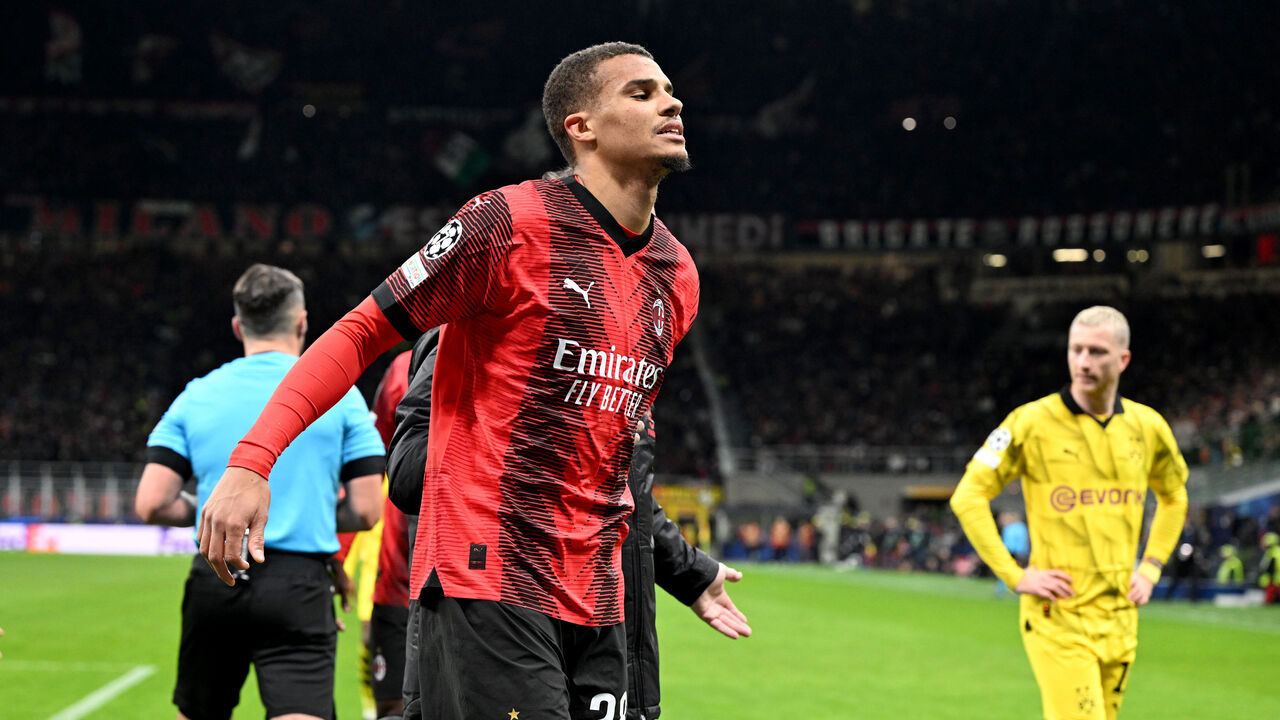
Though there’s enough blame to go around – left-back Theo Hernandez, for one, has looked like a shell of the player who bombed forward with gusto last season – Pioli is the one responsible for keeping these players in playing condition. That hasn’t happened, and it isn’t just because of the sheer number of games in succession. Milan have racked up 25 injuries in four months alone – far more than any other Serie A team – and lost 89 man games to those injuries.
On Tuesday, Malick Thiaw became the fourth defender to join Milan’s bloated infirmary when he pulled his hamstring in a seemingly winnable footrace. Without any other center-backs at his disposal, Pioli had to play midfielder Rade Krunic out of position. It was no surprise to see a 1-1 game slip away from the Rossoneri. That’s how their entire season is slipping away.
An argument can be made that Milan stand to benefit from playing the rest of the season without Champions League obligations. How could they possibly remain competitive on multiple fronts without a fully functioning roster? But to say that is to undermine all the progress they’ve made in recent years. They should be competing on multiple fronts. They are built for it. They have the players for it. They have proved they can do it. So if they aren’t competing, then what exactly are they doing? – Anthony Lopopolo
Quick free-kicks
Cancelo accepts invitation to shine
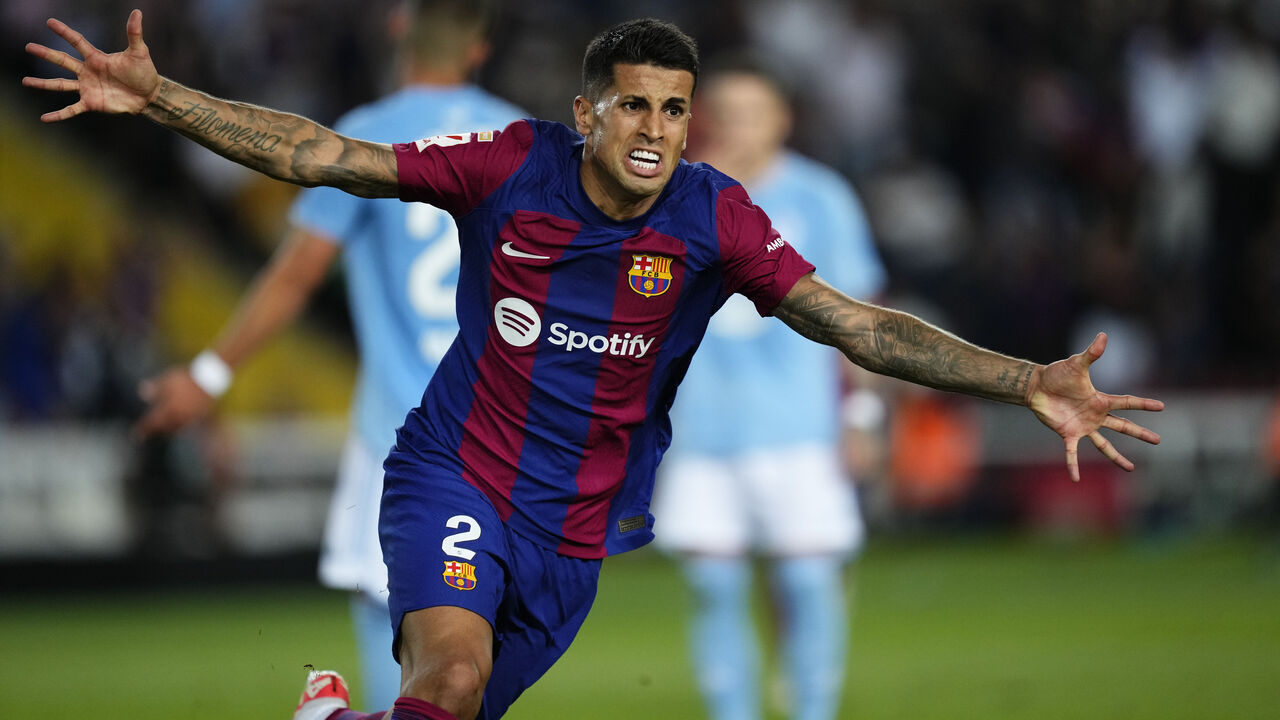
Joao Cancelo is an unpredictable and slick dribbler, but he didn’t need to dig deep into his repertoire of tricks to dupe FC Porto right-back Joao Mario. The right-footed left-back switched the ball to his stronger foot – as right-footed left-backs tend to do – and easily exposed Joao Mario’s poor body shape and anticipation as he moved into the box and excellently slotted in Barcelona’s equalizer. The Porto youngster didn’t learn his lesson, allowing Cancelo to cut inside minutes after the break to set up a Joao Felix chance and also take a shot himself. And one of the few times Joao Mario blocked Cancelo’s route onto his right trotter, the relentless Barcelona star used his left peg to stab a cross under Joao Mario’s foot and to Felix, who duly netted the decisive strike in Barca’s 2-1 win. Cancelo had an excellent game – he even performed a wonderful trivela pass later in the second half – but he should reserve special thanks to Joao Mario for ensuring his evening was so enjoyable. – Daniel Rouse
Dortmund have a gem in Bynoe-Gittens
Jamie Bynoe-Gittens had to wait a couple of years before he could start for Borussia Dortmund. While Jadon Sancho and Jude Bellingham made the transition to German football seem easy, Bynoe-Gittens had to overcome torn knee ligaments and a spell at youth level before he could earn a shot at first-team football. That happened last season, and his case to start only strengthened after his performance in Milan on Tuesday. Bynoe-Gittens made mincemeat out of Davide Calabria, turning the Italian right-back inside out in ways Mbappe couldn’t quite manage earlier in the group stage. Bynoe-Gittens, who’s still just 19, won the penalty that gave Dortmund the lead and arrowed an accurate shot inside the left post for the winning goal. Expect more from the English talent, who’s one of Dortmund’s bravest dribblers and mature enough to handle more minutes in the Champions League. – Lopopolo
Onana errors leave Man Utd on brink
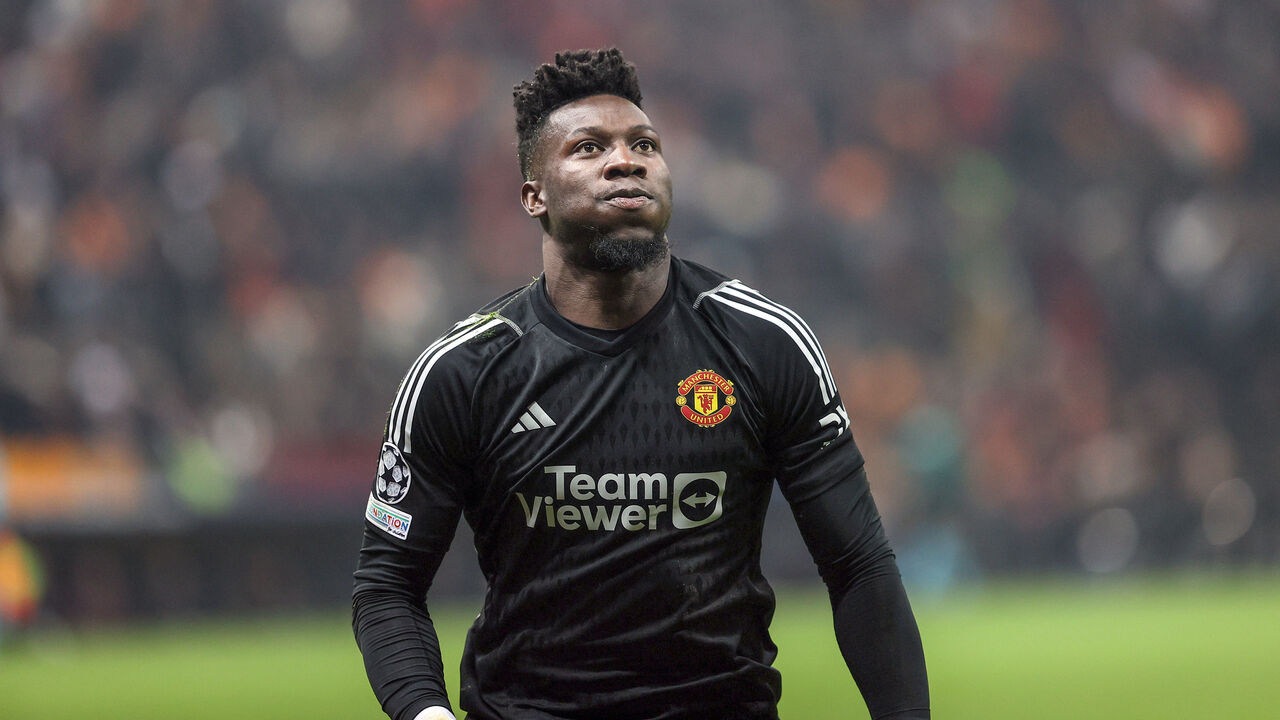
Andre Onana didn’t do anything to ease the pressure on himself in Istanbul. The unsettled goalkeeper has been deservedly questioned after several suspect errors this season, but his latest shocker will sting the most if it ends up costing Manchester United a spot in the Champions League knockout rounds. Victory seemed inevitable after Scott McTominay made it 3-1 for United in the second half on Wednesday. But then, disaster struck again for a United outfit fresh off coughing up a two-goal lead in a losing effort in its last Champions League outing. After letting in a soft goal off Hakim Ziyech’s free-kick in the first half, Onana outdid himself on another set piece from the Moroccan that should’ve been comfortably saved. Onana clumsily batted the ball into his own net, paving the way for Galatasaray to score an equalizer shortly after. Now that he’s conceded a club-record 14 goals in the group stage, one has to wonder if Erik ten Hag is considering a change heading into Manchester United’s most important game of the season to date against Bayern Munich on Dec. 12. – Gordon Brunt
No parting gift from Monchi
Sevilla fans give Monchi the kind of reverence usually reserved for an all-time top scorer or a defensive stalwart who captains the club for most of their career. The former sporting director is viewed as the architect of the glory years, the man whose transfer deals at the Estadio Ramon Sanchez-Pizjuan created serial Europa League winners. However, since he departed Sevilla for a second time last summer, joining Aston Villa as president of football operations, it’s clear that there wasn’t a great deal of succession planning in the squad he left behind. The average age of the starting XI that faced PSV Eindhoven on Wednesday was the oldest in Champions League history at 32 years and 19 days. Sevilla led 2-0, but Lucas Ocampos’ red card changed everything, and PSV eventually took a 3-2 away win. The Andalusians are positioned 15th in La Liga and might not even drop into the Europa League due to their disappointing Champions League group campaign. “The team loses out on a lot today,” Sergio Ramos said. – Rouse
Inter spoil Joao Mario’s big day
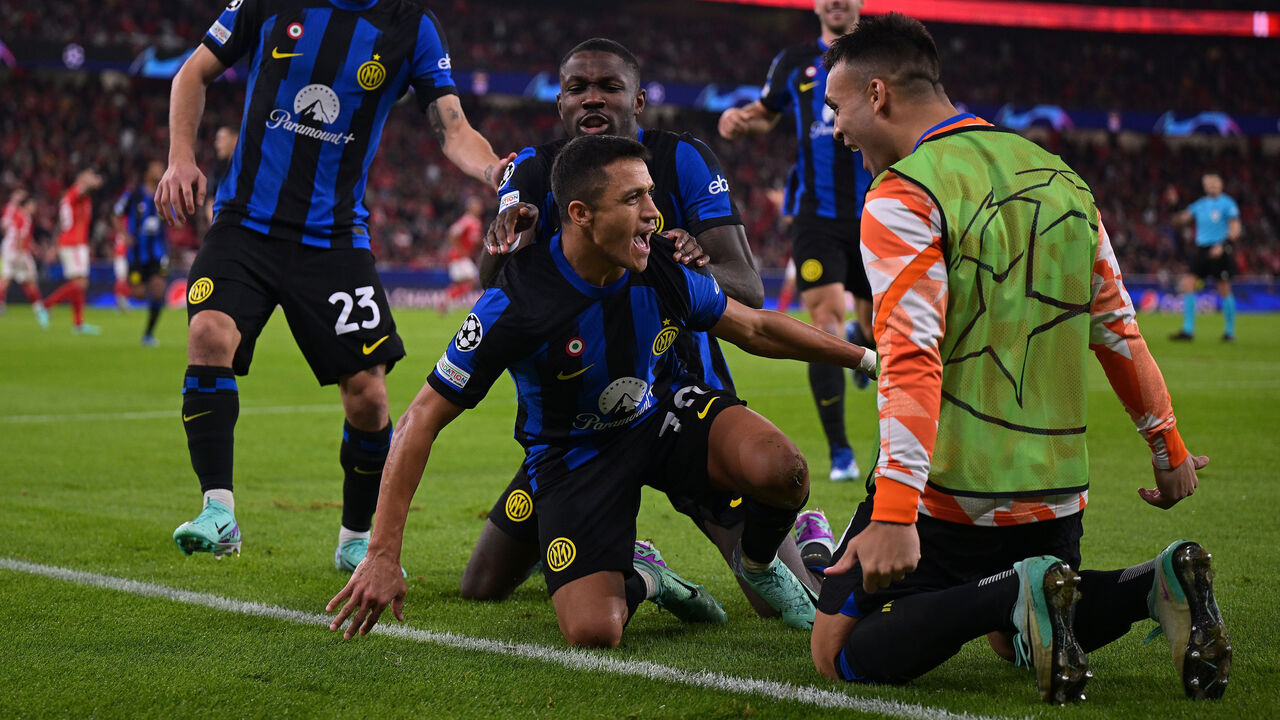
For 34 minutes, it felt like we were watching the Benfica of last season again. With the major caveat that Inter Milan rested several key starters – including talisman Lautaro Martinez – between league matches against Juventus and Napoli, Benfica, already eliminated from knockout-stage contention after losing all of their previous Group D matches, scored three times in just over half an hour at the Estadio da Luz on Wednesday. Former Inter midfielder Joao Mario, of all people, notched all of them. Benfica were moving the ball quickly, and Inter’s second-string XI was making defensive blunders all over the place. But the home fans (who were likely asking, “Where has this been all season?” in the first half) saw their team revert to type after the interval. Benfica lost their shape and, eventually, their three-goal lead, too. Last season’s finalists came all the way back for a 3-3 draw and nearly snatched the win when Nicolo Barella struck the post in stoppage time. Unfortunately for fans of the Portuguese side, this was more like what they’ve seen from their team in this season’s Champions League. The stalemate was Benfica’s first point of the group stage, but it felt like another defeat. – Nesci
Post-miracle slumps
Royal Antwerp likely never expected to progress from a group with Barcelona, Porto, and Shakhtar Donetsk. But since Antwerp earned their first league title in 66 years courtesy of Toby Alderweireld’s stoppage-time goal on the final day of the 2022-23 Belgian season, the dip has been considerable. Following Tuesday’s dreary 1-0 loss to Shakhtar, they’ve collected zero points from five group-stage matches, and they’re nine points adrift of league-leading Royale Union Saint-Gilloise in the Belgian Pro League. The comedown at Union Berlin has been worse: They’ve suffered 13 defeats and three draws over their last 16 outings after Wednesday’s 1-1 draw at Braga, leaving them with two points at the bottom of Group C, eliminated from the DFB-Pokal, and in the Bundesliga’s relegation zone. Still, were Antwerp’s miraculous title triumph and Union’s incredible rise after near-extinction worth it, considering what’s happening now? Of course, they were. – Rouse
Stat of the week
Considering some of the one-sided games the Champions League has offered up over the years, this is an impressive accomplishment from Arsenal, who qualified for the knockout stages with a 6-0 hammering of Lens.
5 – @Arsenal are the first English team to lead by 5+ goals at half-time in a @ChampionsLeague match. Business. pic.twitter.com/3vQxmGRS0C
— OptaJoe (@OptaJoe) November 29, 2023
Tweet of the week
Poor Louis van Gaal. Still catching strays during Manchester United matches.
Think Man United missed more chances tonight than they created in the entirety of Louis van Gaal’s reign
— Adam Crafton (@AdamCrafton_) November 29, 2023

Breaking down thrilling EPL title race with 10 games left

Euro 2024 playoffs: Miraculous Ukraine comeback, big result for Wales

Managerial merry-go-round: Predicting hires for marquee jobs

The Champions League's best XI so far

Ready Newest Trainer in Bundesliga History, retire SOLSKYER.

35 stars who will define the summer transfer window
Trending
-
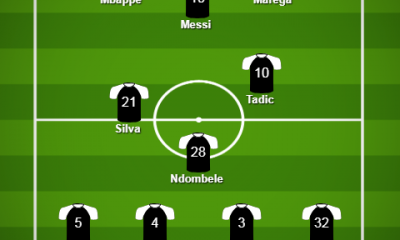
 Champions League7 years ago
Champions League7 years agoThe Champions League's best XI so far
-
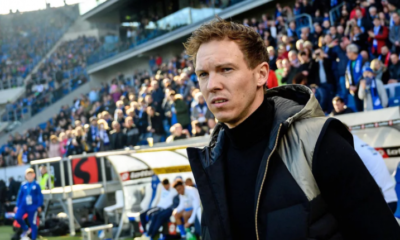
 Sports6 years ago
Sports6 years agoReady Newest Trainer in Bundesliga History, retire SOLSKYER.
-
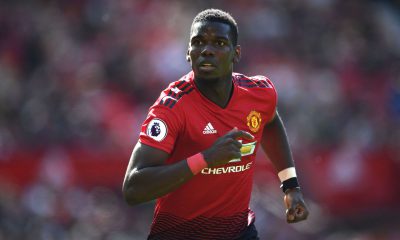
 Serie A7 years ago
Serie A7 years ago35 stars who will define the summer transfer window
-
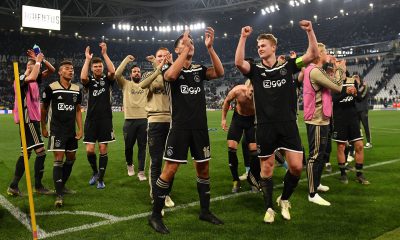
 Serie A7 years ago
Serie A7 years agoAjax show Juventus that winning requires more than individual quality
-
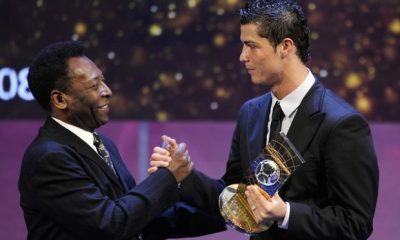
 Uncategorized5 years ago
Uncategorized5 years agoIFFHS publishes the list of top scorers in football history – Romario first, Ronaldo third
-
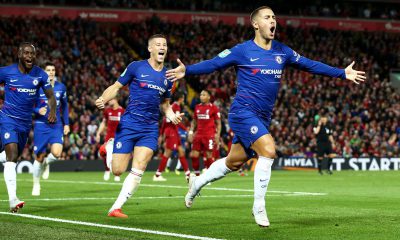
 Premier League7 years ago
Premier League7 years agoTransfer grades: Assessing Hazard’s move to Real Madrid
-
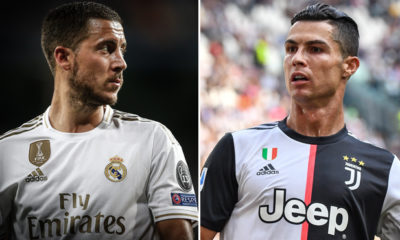
 Sports6 years ago
Sports6 years agoWenger: Hazard can’t replace Ronaldo.
-
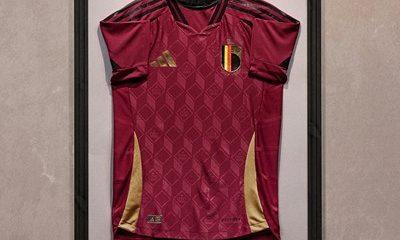
 La Liga2 years ago
La Liga2 years agoLook: Adidas drops huge collection of new kits for Euro 2024, Copa America

